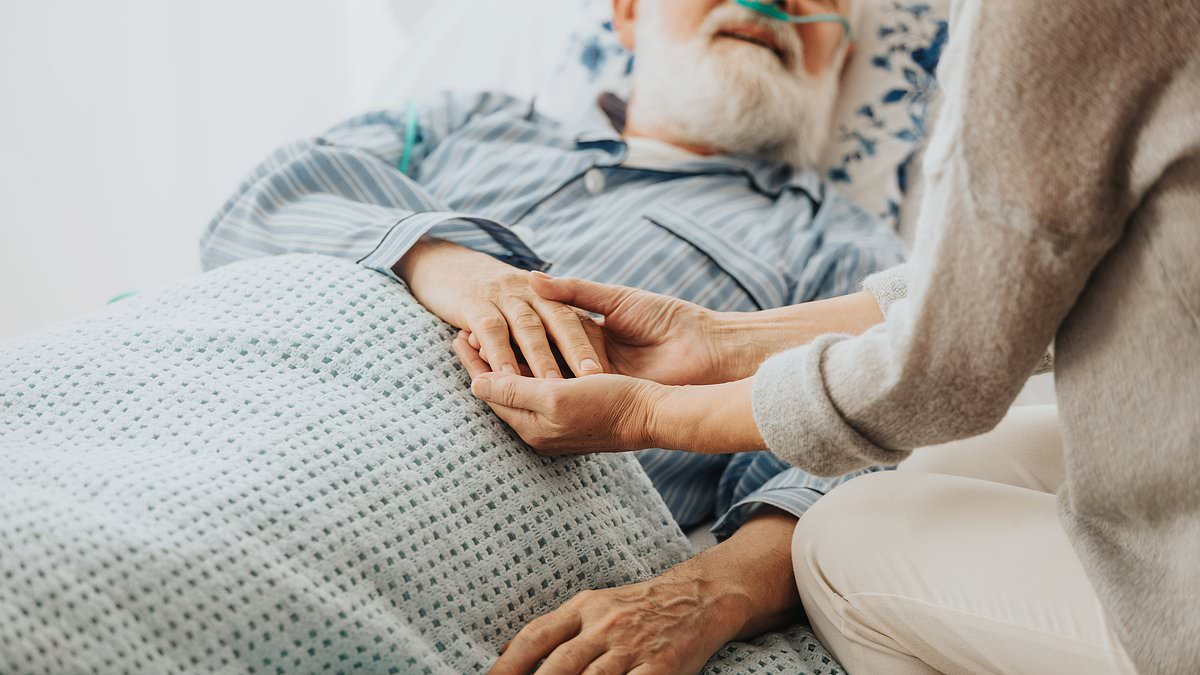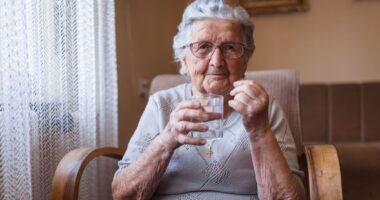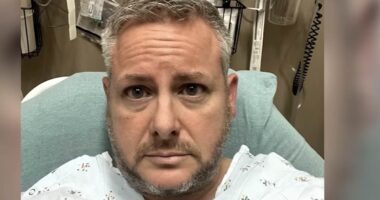Patients are being failed at the end of life by a care system in crisis, a damning report warns today.
One in three spent their final week ‘severely or overwhelmingly’ in pain, said the biggest survey on the subject in a decade.
Problems accessing appropriate care mean patients are often ‘dying in distress and alone’, added the UK’s leading end-of-life charity.
Marie Curie added that the stark findings showed a care system ‘in crisis’ at a time when patients desperately need support.
It surveyed nearly 1,200 relatives who had registered the death of a loved one in the past six to ten months and the results were analysed by the University of Cambridge, King’s College London and Hull York Medical School.

One in three spent their final week ‘severely or overwhelmingly’ in pain, the report revealed (file image)

The report revealed one in five had no contact with their family doctor in the past three months (file image)
Questions included if there were any services which were difficult to access or if patients had the help they needed from GPs, community nurses, hospital doctors and nurses or a palliative care team.
The answers revealed gaping holes with one in five having no contact with their family doctor in the past three months. Nearly half said their dying loved one visited A&E at least once during this period, most often for pain medication.
Marie Curie said this is evidence that ‘too many people close to death end up in a busy A&E because there isn’t access to proper care at home or in a care home’.
Half of survey respondents said they were unhappy with at least one aspect of the care the dying person received. Of those, one in eight made a formal complaint.
Professor Katherine Sleeman, the lead researcher from King’s, said: ‘This study reveals patchy and inconsistent provision of care.
‘While there were examples of excellent care, the overall picture is of services that are overstretched, and of health and care staff lacking the time to consistently provide high-quality care.’
Matthew Reed, chief executive of Marie Curie, said the results painted a ‘shocking’ picture of patients and their families being let down.
He added: ‘The inevitable consequence of this is people dying in distress and alone at home, in care homes, and in hospitals. It isn’t good enough.’
Dr Adrian Boyle, head of the Royal College of Emergency Medicine, said: ‘It can be heartbreaking to see people nearing the end of their lives having to seek help or pain relief in emergency departments. They are not always the most appropriate place. It reflects a system failure.’
The Department of Health and Social Care said it was facing ‘huge challenges’ in the hospice sector and ministers had met NHS England to discuss access to and the quality of end-of-life care.










